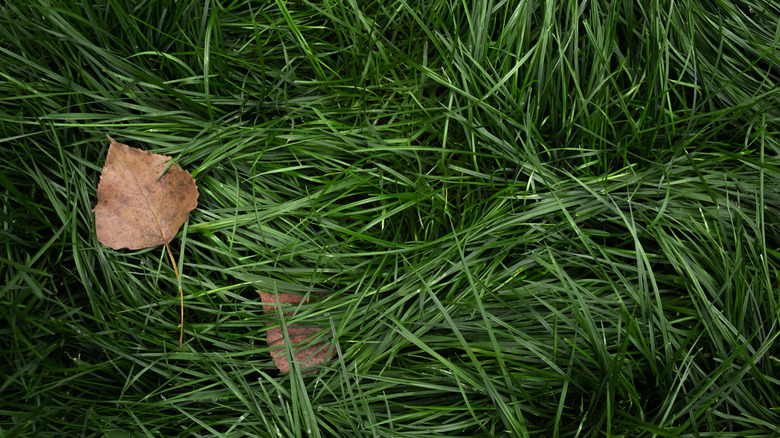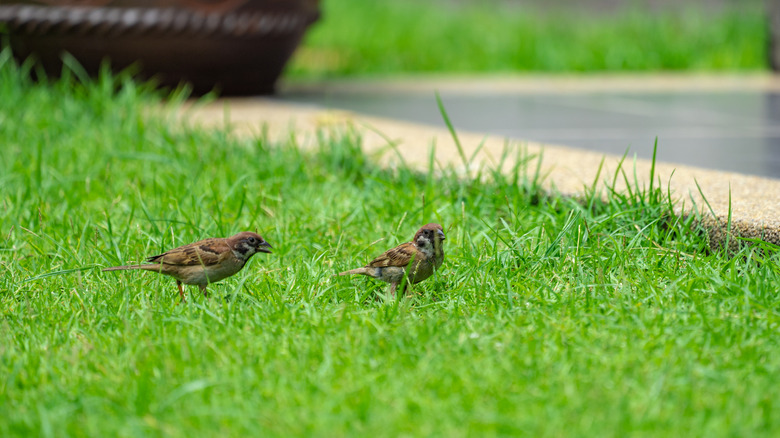Avoid Mowing Your Lawn This Fall If You Want Birds In Your Yard
It's a common practice for many homeowners to tidy up their yard in the fall by cleaning up debris, raking leaves, and mowing the lawn short one last time. But if you're a bird lover hoping to attract some feathered friends, you may want to reconsider raking leaves and mowing your lawn short. While cleaning debris from around your home is a good idea (to prevent unwanted critters), leaving your lawn a little longer and not raking provides much-needed food and shelter for a variety of birds.
Birds that overwinter in your location are looking for food sources and stores to return to during winter. And your yard can provide them with those resources. An unraked lawn with slightly longer grass creates the perfect environment for bugs, larvae, and worms to thrive — a veritable buffet for birds. Longer grass also provides them a safe place to nest or hunker down, while a freshly cut lawn offers no place for your feathered buddies to hide and feast.
If you've ever looked up how to attract birds to your garden, the answer often starts with creating a welcoming, food-rich space. And avoiding a final mow in fall has exactly that same effect on your yard, offering the same benefits as setting out feeders but with less maintenance and a more natural result.
How to create a bird-friendly yard this fall without much effort
Skipping mowing your lawn short one final time is not the only way to provide an oasis for birds in the fall. By letting nature do its thing, you can easily turn your outdoor space into a bird-watching paradise. Once your feathered friends know they can rely on you for a safe haven during the sudden season change, they will keep returning throughout fall and winter. And you'll find yourself graced with the presence of cardinals, sparrows, and chickadees, just to name a few.
Some bird lovers turn to suet in the winter, but you might want to think twice before using suet to attract birds to your yard, as it can spoil in fluctuating temperatures or attract unwanted pests, like squirrels or raccoons. This is a perfect reason to consider bird feeder alternatives to naturally attract birds to your yard, like leaving seed-rich plants untouched, planting berry-producing shrubs, or letting your lawn go a little wild in fall. These simple choices create the same appeal as feeders without the upkeep or risks.
The advantage of not mowing in the fall extends well beyond birdwatching. Your lawn will also benefit from this practice and will thank you in the spring. When you leave organic matter in place (you can mulch the leaves with your mower on a higher setting as well), it decomposes and acts as a natural fertilizer. This feeds the soil, reduces the need for chemicals, and minimizes yard maintenance. By embracing a less manicured lawn this fall, you're not only supporting local wildlife but also setting the stage for a more vibrant, resilient yard year after year.

